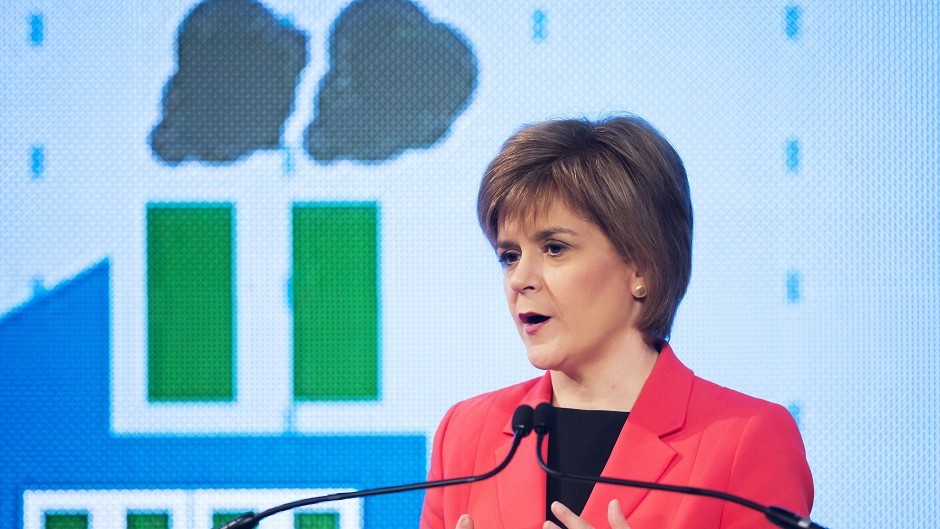A minority UK Government could lead to better thought out and consensual policies, Nicola Sturgeon declared last night.
The first minister said the Chancellor’s headline grabbing budget surprises may wrong foot the opposition but did little to allow debate on complex issues.
She confirmed the SNP will not enter into any formal coalition deal but will instead use its four-years as a minority government at Holyrood to strike deals in the Scottish interest.
Speaking at a London School of Economics, Ms Sturgeon said: “The process UK governments follow now allows virtually no time for proper deliberation or consultation.
“That problem is made worse by the way in which successive governments have approached the budget.
“Chancellors take pride in pulling rabbits out of the hat. Surprises are seen as a virtue. They help to create headlines and wrong-foot the opposition.
“It’s much more difficult for that to happen in Scotland. The Scottish Government has to publish a detailed draft budget each September, four months before the budget bill is laid before Parliament.”
Ms Sturgeon said when she was deputy first minister until 2011 there were “some advantages” to being in a minority government.
The audience heard that the SNP could only win votes by winning arguments and sometime that mean having to compromised, a process which often lead to better budgets.
At different times the Scottish Government did deals with Labour on increasing apprenticeships, the Conservatives on regenerating town centres, the Greens on a home insulation scheme and the Liberal Democrats on college bursaries.
“Doing anything similar at Westminster would require substantial changes to how budgets are put together – most importantly, perhaps, it would require a different, far more consensual approach,” Ms Sturgeon said.
“I think that would be very beneficial and, who knows, it could be one of the benefits of a period of minority government following the general election.”
Ms Sturgeon added that the UK budget process could learn much from Holyrood with its transparent system that allowed time to scrutinise and improve spending.
